EduTech entrepreneur David Yeo wishes to help boost the agility of Singapore’s workforce amid a volatile pandemic world
As the founder and CEO of digital learning solutions provider Kydon Group, Mr David Yeo is a passionate advocate for using learning to catalyse better lives and livelihoods.
His attitude towards formal education in his younger days, though, was markedly less enthusiastic. “I didn’t like studying,” he shares candidly. “I didn’t enjoy time spent in classrooms, I didn’t like regurgitating information. Exams were usually a pain, and I struggled through them.”
Mr Yeo believes that such rote learning is the antithesis of how people living in today’s rapidly changing world should educate themselves. “Traditional learning systems are designed for environments where we know what needs to be done, and we train people to do those things. Today, people need to adapt on their own, rather than be told what to do. And for that to happen, we need to change the entire structure of learning.”
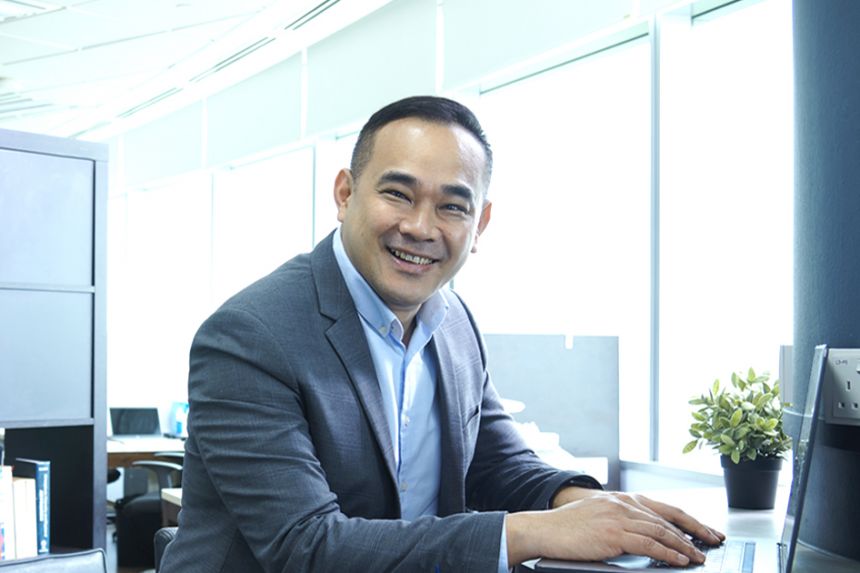
Kydon, which he founded in 2012, designs technologies to help businesses, institutions and individuals do just that, and its B2B clients include government ministries and statutory boards, multinational corporations, and educational institutions.
With the Covid-19 pandemic dramatically accelerating the pace of change across industries, the company is currently developing a new digital platform tailored for individuals and creators of training content trying to get their bearings in this transformed landscape.
Named ZilLearn Skills, the platform is slated to launch later this year to help the workforce level up. It couldn’t come at a better time. A 2020 Hays’ Report found that a majority of Singaporeans regarded reskilling (80 percent) and upskilling (88 percent) as very important to them, following the outbreak of the pandemic. Here’s how it will work: A user uploads his resume, and indicates his professional goals (for instance, he may want to advance in his current industry, or pivot to a new sector). With support from project partner JobTech, a job market insight generator, the platform will then be able to identify the necessary skills the user needs to acquire for his target job role.
Users will be able to customise course recommendations, such as the quickest or most affordable pathways to plug their skills gaps. Training content will come from other project partners including SMU Academy, the professional training arm of the Singapore Management University; TaF.tc, Singapore’s first Continuing Education and Training (CET) centre for the textile and fashion industry; as well as external platforms such as open online course providers.
A key feature will be the capability for content creators to generate and adapt their materials quickly. “Traditional long-form curricula will likely become irrelevant sooner than before,” Mr Yeo notes. “For people to manoeuvre nimbly in this fluid environment, they need to be able to access bite-sized learning components. It’s like having multiple checkpoints in changing traffic conditions, so you have different ways to get to your destination.”
Transformational learning journey
How did this reluctant student end up in a career dedicated to helping others learn?
While he did not enjoy studying, this youngest child in a family of six boys put in effort to do well in his studies. Thanks to his five older brothers, who had no qualms about reminding him that he was the least academically inclined of them all and vigilantly “spurred” him to work hard on 10-year-series assessment books.
Preferring action-oriented pursuits, he accepted a scholarship offer from the Singapore Armed Forces (SAF) after his National Service, believing that a non-deskbound career would better suit him.
Little did he know that his education journey had only just begun. In 2000, Mr Yeo was offered a post-graduate SAF scholarship to study instructional systems at Florida State University in the United States.
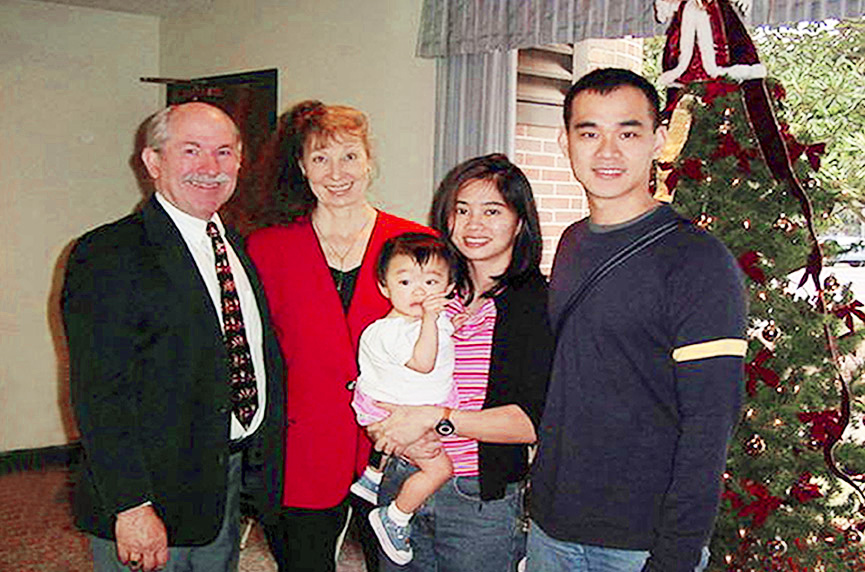
He remembers feeling a bit surprised at this turn of events. “Subjects like weapons systems and strategic studies would have been more typical for an armed forces vocation,” he explains. “But as a good soldier, when they ask you to jump, you say how high.”
At the time, the SAF was beginning to transform learning for its soldiers so that they would be better equipped to adapt to fast-changing environments. This required a paradigm shift from passive instructor-led learning to a more self-directed model. The adoption of technology was a critical part of this transformation, and Mr Yeo’s post-graduate programme was all about how technology could enable better learning.
His year in Florida proved to be a significant turning point, professionally and personally. This time around, he found himself enjoying his studies and the insights from his classmates, many of whom were from high-performing enterprises including technology companies. “I realised I had a knack for the subject, and I deep-dived into it,” Mr Yeo says.
MR. DAVID YEO, FOUNDER & CEO, KYDON GROUP
For people to maneuver nimbly in this fluid environment, they need to be able to access bite-sized learning components. It’s like having multiple checkpoints in changing traffic conditions, and you have different ways to get to your destination.
After returning to Singapore, he turned his professional focus to bringing about change in learning in the SAF, eventually heading the Training and Learning Systems department, where he conceptualised a learning transformation masterplan. He also led the Project Office for LEARNet, a tech-enabled training system that allowed soldiers to gain more control over the pace and content.
In 2012, he decided to strike out on his own, naming his learning technologies start-up Kydon – a Greek word for “spear”, because “learning can pierce through the darkness of ignorance”, as he puts it.
His time in the SAF had been an important impetus for this new chapter, as it had helped him understand learning technologies’ relevance to institutions beyond the armed forces. His experiences as a volunteer who frequently worked in less privileged communities in Singapore and developing countries had also spurred his turn towards entrepreneurship.
“Singapore’s education system has strong processes, content, and educators, which are lacking in many parts of the world,” Mr Yeo says. “How can we adapt and scale this up so that we can help to improve more lives through education, especially in Asia?”
Enabling agility
Kydon began expanding into other Asian markets a few years ago, and currently has a presence in India, Vietnam, and Malaysia. Over the past year, as the pandemic accelerated the global adoption rate of remote online learning through different technologies, the company has met a growing demand for its services by increasing its headcount by over 20 percent (it currently has 150 employees) and expanding its portfolio of products.
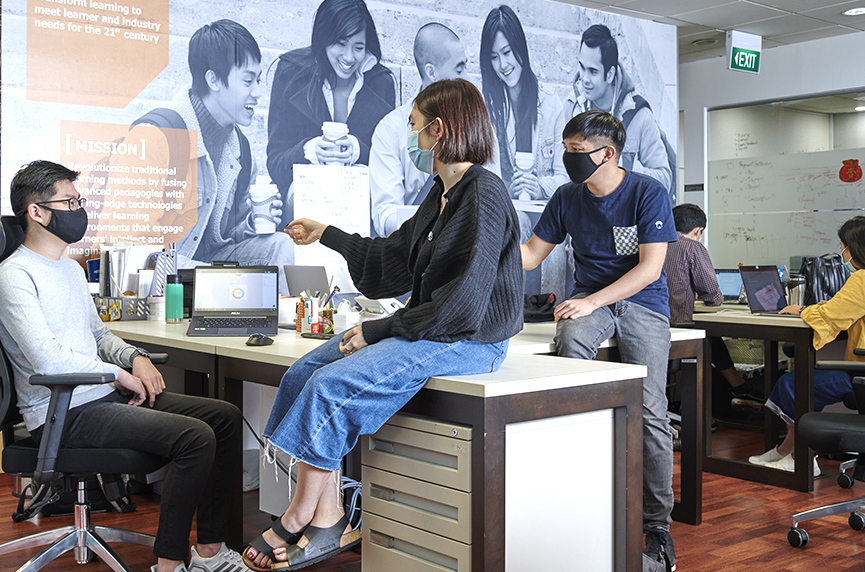
Growth in the EduTech sector will likely persist. The EdTechX 2020 Global Report states that the industry is expected to grow between 14 and 16 per cent per annum, amounting to a total value of up to US$406 billion by 2025.
This landscape presents unique opportunities for home-grown players in the education sector. Besides gaining a strong global reputation for its education system, Singapore has also carved out a considerable head start in the fast-growing CET space for working adults, thanks to the longstanding national ethos of maintaining the relevance and survival of a small city-state in a fast-changing world.
This ethos drives numerous national endeavours, including the SAF’s learning transformation project, and the 2015 launch of the SkillsFuture scheme, which offers Singaporeans a wide range of upgrading programmes in professional training and soft skills.
This means there is a strong foundation in place when it comes to readying the Singapore workforce for the new and emerging industries of the much transformed post-pandemic world. It also means that the CET players here are well positioned to meet the growing global demand for CET, especially in South-east Asia.
To explore these opportunities, the EduTech Alliance for Action (AfA), one of the industry-led coalitions formed by the Singapore Government’s Emerging Stronger Taskforce, brought together different stakeholders from the education sector last year for Hack-A-Future workshop to brainstorm new concepts in CET. (See Emerging Stronger Together)
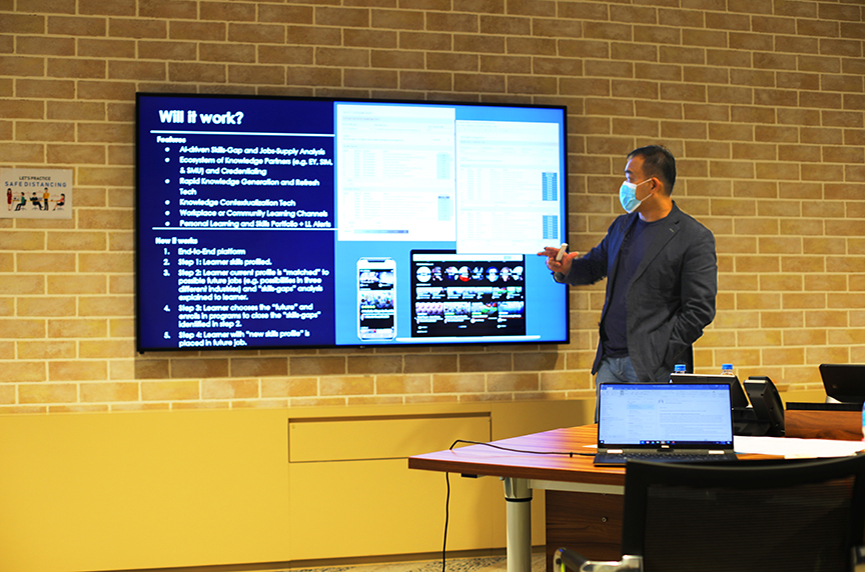
The seeds for ZilLearn Skills were first planted at the hackathon, where Mr Yeo was one of the participants. He was able to interact and iterate ideas with fellow participants and learn from their perspectives.
“I find the idea of education being a significant economic driver very interesting,” he says of why he was keen to take part. “Singapore has always thought of education as an economic enabler – something that can help build our workforce. But the idea of education as an industry that can contribute significantly to our GDP is newer. With Covid-19, many previously well-performing businesses may take a while to recover, or may not recover at all. We need new economic drivers, and I want to contribute to that conversation.”
Helping people pivot
Much of the technology that powers ZilLearn Skills was already in the works at Kydon before the pandemic. Mr Yeo shares, “Kydon was developing ZilLearn as a platform for structured learning, bringing instructors and learners in one open, mobile, media-rich learning space. ZilLearn Skills is a natural extension of this effort, providing learners the added value of closing skills gaps to advance or pivot their career, and course providers the ability to scale their business and engage their learners online.”
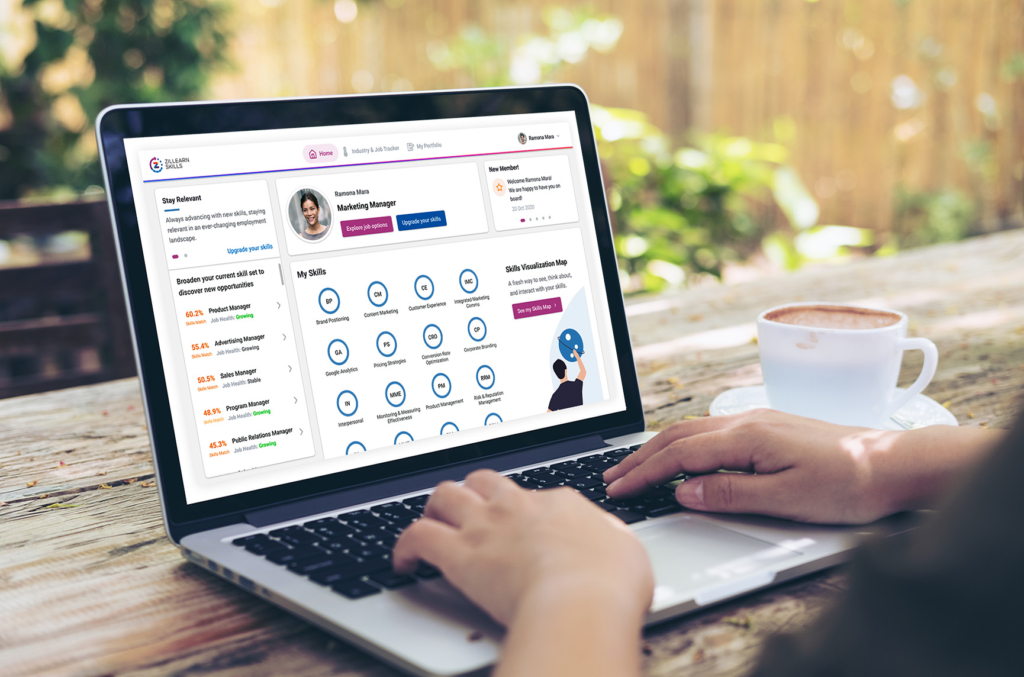
Mr Yeo, whose company had to speed up ZilLearn Skills’ development to respond to the needs of the crisis, adds, “Participating in the Alliance has given us a sense of mission and urgency. What we wanted to deliver over two years has now been compressed to six months. I told the team, think of this as National Service.”
Technology alone will never be the silver bullet for uncertainty. What’s most important is the human spirit – that’s what makes things happen.
MR DAVID YEO
While he believes that ZilLearn Skills’ combination of job market insights and customised learning pathways has the potential to grow its regional reach, his sights for the moment are set on its usefulness in Singapore.
Ask him how he intends to assess the success of the project, and the 48-year-old says thoughtfully: “From the Singapore workforce management point of view, those aged 40 to 50 are considered to be at a higher risk of redundancy. And I do know quite a few peers who are struggling with career advancement and pivoting. I will consider the project a success when people facing these challenges use this platform to become more agile and are able to progress in their careers.”
To make sure that such users will find the platform simple to navigate, his team conducted focus groups with Singaporeans who were looking for jobs or seeking to advance in their careers, as well as employers. Ease of use, after all, is one way to embed a sense of encouragement in digital platforms, and that can often be very important when it comes to self-directed learning.
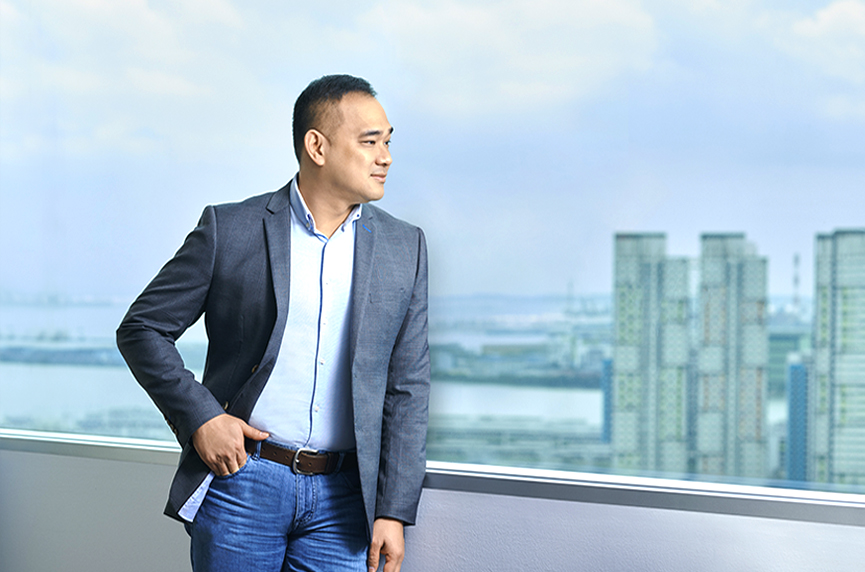
In his own life, Mr Yeo has learned to step out of his comfort zone when it comes to education, but he also credits mentors who he says have made a significant impact in helping him believe in his learning ability. “To mentor is to empower. We need people like that to encourage learning, to create opportunities for it, and help people trust their inherent latent capabilities,” he says.
“How will the world change tomorrow? Nobody knows for sure. But technology alone will never be the silver bullet for uncertainty. What’s most important is the human spirit – that’s what makes things happen.”
This story was written by Hong Xinyi and originally published in The Singapore Straits Times on Feb. 7, 2021.



